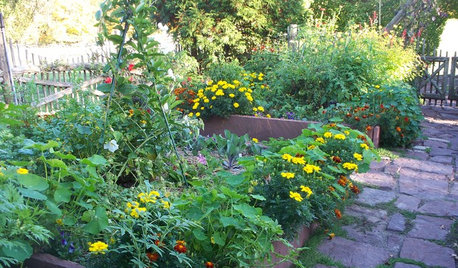Best organic pesticides?
rose_crazy
12 years ago
Featured Answer
Sort by:Oldest
Comments (38)
TheMasterGardener1
12 years agohoosierbanana
12 years agorhizo_1 (North AL) zone 7
12 years agoKimmsr
12 years agoMichael
12 years agomaplerbirch
12 years agoTheMasterGardener1
12 years agobi11me
12 years agoTheMasterGardener1
12 years agobi11me
12 years agoKimmsr
12 years agomaplerbirch
12 years agoTheMasterGardener1
12 years agorose_crazy
12 years agoOhiofem 6a/5b Southwest Ohio
12 years agoTheMasterGardener1
12 years agoKimmsr
12 years agoboulderbelt
12 years agomaplerbirch
12 years agoOhiofem 6a/5b Southwest Ohio
12 years agoTheMasterGardener1
12 years agowillylynn
12 years agovictorine72
12 years agoJon_dear
12 years agoKimmsr
12 years agoJon_dear
12 years agoKimmsr
12 years agoMichael
12 years agowillylynn
11 years agojolj
11 years agoannpat
11 years agoHeater-Issue
9 years agoKimmsr
9 years agoHeater-Issue
9 years agoKimmsr
9 years agopeter_6
9 years agogreenbean_2011
9 years ago
Related Stories

GARDENING GUIDESHow to Switch to an Organic Landscape Plan
Ditch the chemicals for a naturally beautiful lawn and garden, using living fertilizers and other nontoxic treatments
Full Story
DECORATING GUIDESGet Organized: A Place for Your Pets' Stuff
Live in style with your cat or dog thanks to special places for their food, bed and toys
Full Story
GARDENING GUIDESOrganic Matters: Thwart Insect Pests With Trap Crops
Add a few sacrificial plants to your garden to lure insects away from the harvest
Full Story
FURNITUREEasy Green: Stylish Ecofriendly Furniture
Organic fabrics and sustainably harvested wood mean you can feel good about your furniture choices in more ways than one
Full Story
ORGANIZINGSmart Solutions for Clothes Closets
The Hardworking Home: Explore these ways to store your clothes, shoes and accessories to make the most of your space
Full Story
HOUSEKEEPING10 Things Neat Freaks Know to Be True
Do you err on the incredibly tidy side? Then you probably already live by these nuggets of neat wisdom
Full Story
STORAGEStroke of DIY Genius: Get Hooked on These 15 DIY Storage Hacks
These DIY homeowner ideas include a repurposed vintage tennis racket and reclaimed-wood pieces
Full Story
FALL GARDENING5 Ways to Put Fall Leaves to Work in Your Garden
Improve your soil and yard the organic way with a valuable garden booster that grows on trees
Full Story
EDIBLE GARDENSGarden BFFs? Why Your Vegetables Are Begging for Companion Plants
Foster friendships among plants for protection from pests, pollination support and color camaraderie
Full Story
INSPIRING GARDENSInside Houzz: A Waterfront Property Ditches the Grass for a Garden
New drought-tolerant plantings and outdoor gathering spaces help this California backyard take in the view without wasting space or water
Full Story







gargwarb